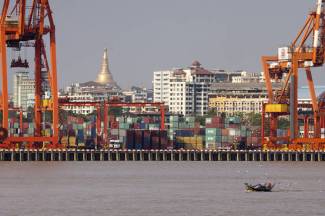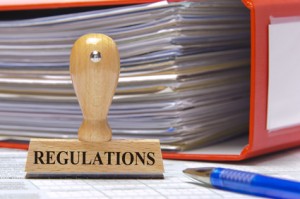Compliance and Registration of Myanmar SMEs

It is no secret that the growth and development of Myanmar SMEs
constitutes a necessary condition for the country’s overall economic
reform. That being the case, it is encouraging that there are already at
least 126,000 SMEs in Myanmar,
constituting over 99% of domestic firms. However, it is also the case
that many enterprises in Myanmar (Over 80% by some estimates) operate
informally, albeit for understandable reasons.
The operating environment for SMEs here is of course notoriously
difficult, with entrepreneurs having to overcome daunting obstacles
including lack of infrastructure, almost no access to financing, and a
dearth of government service oriented toward SMEs. So it is entirely to
be expected that a small business owner in Myanmar today
would ask “Why should I register?” when doing so has historically only
meant additional costs for that person’s business, including payment of
taxes.
While acknowledging all of this, it is also plain that conditions are
rapidly changing for Myanmar entrepreneurs. Opportunities for growth
and profits are rapidly springing up in heretofore unexpected areas,
while in areas that would have been considered safe bets but a few years
ago, risks and competition are multiplying. It is highly likely,
however, that in order to mitigate these risks and take advantage of
these opportunities, firms are going to need to register themselves with
the government in accordance with the law. In fast, a 2013 OECD report
stated that the transition of labor and other assets into the formal
arena will be and important part of Myanmar’s development.
A Changing Myanmar Business Environment

It has been said in many other places that the coming of the ASEAN Economic Community (AEC) will drastically change Myanmar business environment, even for SMEs in Myanmar. Despite the temptations and
inertia to do so, entrepreneurs can no longer afford to think of
themselves as only operating at a local level. Even small operations are
already facing the pressures of a globalized economy, and there is
concern among many economists that Myanmar SMEs are not prepared to
handle this new reality. Various tariff schedules will continue to
disappear, further stiffening the competition that Myanmar enterprises
will face from foreign companies.
This is particularly the case in sectors such as household products,
consumer electronics, canned goods, snack foods, plastic products, and
many other areas. In most of not all cases, these foreign firms take
favorable regulatory environments in their home countries, benefits that
they enjoy as legally recognized enterprises in those countries. If
they are to be competitive, the Myanmar government and the enterprises
are going to need to develop similar cooperative relationships.
However, good businessmen often see opportunity where others see only
risks. There is no reason why a Myanmar entrepreneur cannot turn the
tables and take advantage of the opportunities that AEC will create,
such as the opportunity to tap regional and international market
potential. As is well known, there are many enterprises in Myanmar that
have this potential due to Myanmar’s geography, situated as it is at the
crossroads of India, China, and the rest of South East Asia. Taking
advantage of this, however, will require entrepreneurs to develop ties
with counterparts, both within Myanmar and abroad. This is new and
larger networks will need to be developed that can give the entrepreneur
market intelligence and information. A prerequisite for doing all of
this, however, will be to first become a legally recognized enterprise.
The changing business environment may be seen as positive in other
ways. Foreign companies are coming to Myanmar not only or even primarily
to complete with Myanmar SMEs in many cases they are looking to partner
with them. Sometimes, these partnerships will take the form of
joint-ventures between the foreign company and Myanmar based company. We
are beginning to see a lot of this in sectors like mining food and
beverage manufacturing. And where joint ventures are not feasible, there
will still be opportunities to supply these incoming enterprises.
Either way, taking advantage of such opportunities is going to require
registration.
So the way in which the business environment in changing entails that
enterprises will need to register and comply in order to both mitigate
the risks, and take advantage of the opportunities. The new environment
also entails that the Myanmar government is going to have to make a lot
of changes on its end in order to provide a more friendly business
environment. Given recent history, business owners can be forgiven a
certain amount skepticism with regard to this, but even so, the evidence
is that needed changes are in fact happening.
A Different Kind of Regulatory Regime

The bottom line is that in order for a Myanmar entrepreneur
to feel that it is really worth his while to register his business, he
will need to be convinced that there is something he will get in return.
Historically, such incentives have been almost entirely absent, and one
of the challenges of the economic reform process has been getting
government officials to see that such incentives are essential. These
efforts are beginning to bear fruit, and now Myanmar is slowly but
surely moving away from a legislative framework that aims only at
regulation and control, to one which also aims at business promotion and
development.
However, claiming the benefits that are the immediate results of
these changes, and taking advantage of the favorable environment that is
slowly beginning to emerge as result both require that one operate
one’s business within the confines of the law.
There are at least three concrete examples of how the Myanmar
government is moving to create a better business environment. Beginning
with the obvious, in 2013 the Myanmar Central Committee for SMEs
development was created. Granted, the Committee’s basic function is to
coordinate SMEs policy among various line ministries, and so it does not
have the robust powers of a full statutory board like SPRING Singapore.
Still, it institutions will take some time to evolve. That having been
said, the hope is that in a few years the government will have give a
semi-autonomous SME board the power to actively nurture startups, link
Business Development enterprises, and provide financing to businesses.
As is well known, the government is also moving quickly to establish
Special Economic Zones (SEZs), as well as to expand industrial
development zones. These are but the most obvious examples of hard
infrastructure improvement which will benefit SMEs (especially in the
agricultural products sector) in general. Granted, many SMEs may not
directly benefits in the form of supply opportunities will be
significant. On the SOFT infrastructure side, few will doubt that the
rapidly expanding telecoms network will benefit small businesses, will
beneficial results multiplying as e-commerce platforms come on line. All
of this has been made possible by the government’s comparative
willingness to issue tenders in a way which is both transparent, and in
line with international best practices.
The third example of actions taken by the Myanmar government to
improve the business environment has to do with public-private
consultations. Recently, and at the urging of the President, the
International Finance Corporation (IFC) has partnered with UMFCCI to
create the Myanmar Business Forum (MBF). The purpose of the forum is to
provide the Myanmar private sector with an opportunity to help craft the
laws and regulations by which it will be governed. There are in fact
separate fora for each of seven different industry sectors, and each
group regularly meets with government officials to provide input into
the latest regulations. Note that this is something that may be
participated in right now by any registered company, and IFC especially
is keen to increase participation by Myanmar SMEs.
An improved regulatory environment will have several tangible
results. Infrastructure improvement in general, and SEZ construction in
particular will better enable SMEs to take advantage of economies of
scale. This means that firms will be able to grow their operations while
at the same time increasing efficiency and competitiveness. However,
growing a firm in this way will certainly require regulatory compliance.
Effective development of such infrastructure is also likely to support
cluster development, if efforts can be made to link larger companies
working in the Zones and Estates to smaller, local suppliers.
But perhaps the most important and hoped for result of an improved
business environment is better access to financing. While most Myanmar
SMEs will not be able to take advantage of the recent entry of foreign
banks into the country, their arrival here should be seen as a positive
step. As a stop gap measure until the arrival of formal banking
services, SMEs in Myanmar have access to the Small and
Medium Industrial Development Bank (SMIDB),
which announced last November that it will be able to provide loans to
SMEs at an interest rate between 6 and 8.5%. Both JICA and IFC have
begun similar projects to help increase funding for SMEs. Needless to
say, however, access to financing may only be had by a legally
registered entity with good and transparent accounting, auditing and
governance practices.
Finally, it is worth noting that as the government builds its
capacity regarding services and promotion for businesses, it will also
be building its capacity with respect to tax collection. Indeed, the
Government is increasingly widening its tax net and in due course will
introduce a Value-Added Tax (VAT), as this has proven to be a source of
much greater tax income than an income tax on profits. All SMEs will be
included in that system and will need to comply if they want to engage
in trade and commerce within the complying community. So it is best to
prepare for compliance and reduce the risk of exclusion as well as
potentially major tax assessments and penalties.
If economic reform in Myanmar proves successful, one of the things
that will mean is that not registering a business may in fact entail
more risks and less access to opportunities than would be the case if
one registers. Again, the government’s actions and policies over the
next few years will largely determine whether the previous statement
proves true or false. But it is also clear that thus far, significant
progress has been made. While there will always be competing interests
and problems getting one side to understand the other, the relation
between the government and the private sector should begin to move from
being one of a cat and mouse game between business owners and regulators
to one that is more of a collaborative relationship. For sure, the onus
is mostly upon the Myanmar government to change its approach and
mindset. Business leaders are almost certain to catch on faster to the
new order that is coming. However, that catching on will almost
certainly require operating within the law, as a fully registered and
licensed business establishment.






